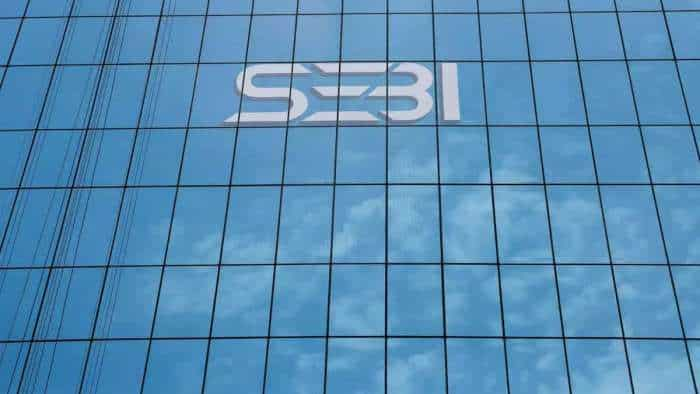Income Tax Returns filing: You can file ITR late, but will have to pay penalties
It is July and there is mad rush for filing Income Tax Returns (ITR). But July 31, which is the due date for salaried and small businessman, is not so sacrosanct as it is made out to be. Even if you miss this deadline, you can still file your ITR.

It is July and there is mad rush for filing Income Tax Returns (ITR). But July 31, which is the due date for salaried and small businessman, is not so sacrosanct as it is made out to be. Even if you miss this deadline, you can still file your ITR. However, there are certain consequences of filing tax returns after July 31. Let us see what these are.
Mandatory late fee
If you fail to file the ITR by July 31, 2018, you can still file it by March 31, 2019, but not beyond that. However, if you file your ITR after July 31, 2018, but on or before December 31, 2018, you will have to pay a mandatory late fee of Rs 5,000 along with your ITR. Moreover, if you file it after December 31, 2018, but by March 31, 2019, the amount of late fee payable doubles to Rs 10,000.
For small taxpayers there is a cap of Rs 1,000 on the amount of late fee payable, in case you file your ITR after July 31, 2018, but by March 31, 2019. This applies to those whose total income, that is, the income after various deductions, does not exceed Rs 5 lakh for the year.
If due to unavailability of some information, say interest on savings account or bank fixed deposit, you are unable to file the ITR, it is advisable to file the return with the available information before July 31, 2018 and revise it by March 31 2019, as and when details are available. This will help you avoid the late fee.
Those who do not have income exceeding the basic exemption and who are not required to file their ITR can still file their ITR. Such taxpayers will not have to pay the lower amount of late fee of Rs 1,000 while filing their ITR.
Interest on delay in filing ITR
In addition to the late filing fee, you will have to pay interest at the rate of 1% for each month or part of the month of delay in filing of your ITR, on the amount of net tax payable by you. The amount of interest is calculated on the net tax liability, after reducing the gross tax liability by subtracting the amount of tax deducted at source and advance tax paid by you. This interest is calculated from July 1, 2018 till you actually file your ITR. This interest will be over and above the interest that you have to pay for your failure to pay advance tax at the rate of 1% from April 1, 2018 till date of payment of the tax as self-assessment tax. So, in case you do not discharge your balance tax liability and are also not able to file your ITR by July 31, 2018, you are incurring interest of 2% per month for both the defaults running together. Even if you are not able to file your ITR due to any reason, at least pay the tax before July 31, 2018 to avoid this 1% monthly interest.
Please note you do not have any interest liability for delay in filing of your ITR if all your tax liability has already been discharged by March 31, 2018.
Watch this Zee Business video here:
Not filing ITR by March 31, 2019
If you fail to file your ITR by March 31, 2019, you cannot file your ITR on your own. However, the income tax officer can issue you a notice after this date for assessing income which has escaped assessment. In such cases the income tax department can levy a penalty on the amount of tax involved at 50% or 200%, depending on the circumstances. This penalty is over and above your regular tax and interest liability. Moreover, the income tax department can also launch a prosecution if the amount of tax sought to be evaded exceeds Rs 3,000. In case the prosecution is successful, you could be sentenced to imprisonment for a period of anywhere between three months and seven years. While chances of this happening are remote, of late the income tax department has known to prosecute taxpayers for such violations too.
(The writer is a tax and investment expert)
Source: DNA India
Get Latest Business News, Stock Market Updates and Videos; Check your tax outgo through Income Tax Calculator and save money through our Personal Finance coverage. Check Business Breaking News Live on Zee Business Twitter and Facebook. Subscribe on YouTube.
RECOMMENDED STORIES
10:33 AM IST











 ITR Filing: Income tax department targets taxpayers claiming false deductions; sends notices to offenders
ITR Filing: Income tax department targets taxpayers claiming false deductions; sends notices to offenders ITR filing season: How much fine you will have to pay if fails to file ITR by 31 July; know here
ITR filing season: How much fine you will have to pay if fails to file ITR by 31 July; know here Non-taxable income: 5 different types of non-taxable income that can help you to save income tax
Non-taxable income: 5 different types of non-taxable income that can help you to save income tax ITR Filing: Follow these steps if your AIS form is not showing income tax paid while filing income tax return
ITR Filing: Follow these steps if your AIS form is not showing income tax paid while filing income tax return How to reduce tax by 52% using salary perks and NPS
How to reduce tax by 52% using salary perks and NPS